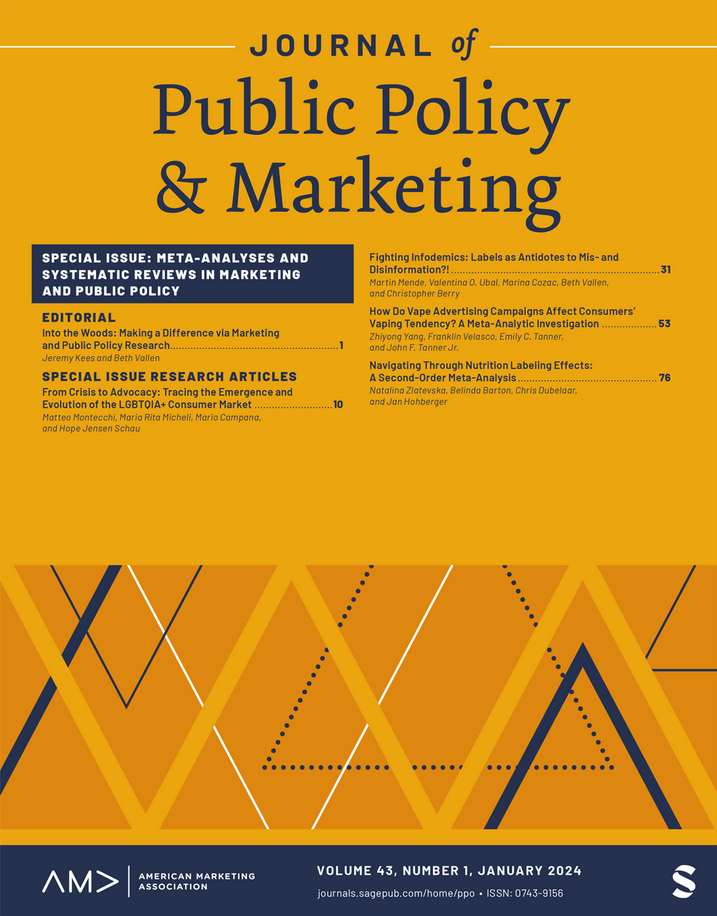描述不健康食品消费的宣传如何减少节食者的食物摄入量
IF 4.7
3区 管理学
Q1 BUSINESS
引用次数: 3
摘要
监管机构和非营利组织都试图了解食品和公共健康广告中包含的各种策略和呼吁如何影响日益注重节食的人群的食物摄入量。这篇文章通过研究关注他们的饮食的消费者如何对不健康食品消费的丰富图像作出反应来解决这个重要问题。两个实验的结果表明,接触含有不健康食品消费图像的食品广告会减少长期关注节食的消费者的食物摄入量,而第三个实验表明,当公共卫生广告描绘不健康食品的消费时,预期消费量也会出现类似的下降。这些发现反过来提供了指导方针,以最大限度地提高信息的有效性,试图促进健康的饮食习惯。此外,本研究为自我控制和心理意象研究领域提供了理论贡献,对监管机构和非营利组织的公共政策具有重要意义。本文章由计算机程序翻译,如有差异,请以英文原文为准。
How Communications That Portray Unhealthy Food Consumption Reduce Food Intake Among Dieters
Both regulatory agencies and nonprofit organizations seek to understand how various tactics and appeals contained in food and public health advertisements might influence the food intake of an increasingly dieting-conscious population. This article addresses this important issue by examining how consumers who are concerned with their diets react to rich images of unhealthy food consumption. Results of two experiments show that exposure to food advertisements containing unhealthy food consumption imagery reduces food intake among consumers chronically concerned with dieting, whereas a third experiment shows a similar decrease in intended consumption when a public health advertisement portrays the consumption of unhealthy food. These findings in turn offer guidelines for maximizing the effectiveness of messages that attempt to promote healthy eating habits. In addition, this research provides theoretical contributions to the self-control and mental imagery research domains, which have public policy implications for regulatory agencies and nonprofit organizations.
求助全文
通过发布文献求助,成功后即可免费获取论文全文。
去求助
来源期刊

Journal of Public Policy & Marketing
BUSINESS-
CiteScore
10.20
自引率
15.40%
发文量
29
期刊介绍:
Journal of Public Policy & Marketing welcomes manuscripts from diverse disciplines to offer a range of perspectives. We encourage submissions from individuals with varied backgrounds, such as marketing, communications, economics, consumer affairs, law, public policy, sociology, psychology, anthropology, or philosophy. The journal prioritizes well-documented, well-reasoned, balanced, and relevant manuscripts, regardless of the author's field of expertise.
 求助内容:
求助内容: 应助结果提醒方式:
应助结果提醒方式:


